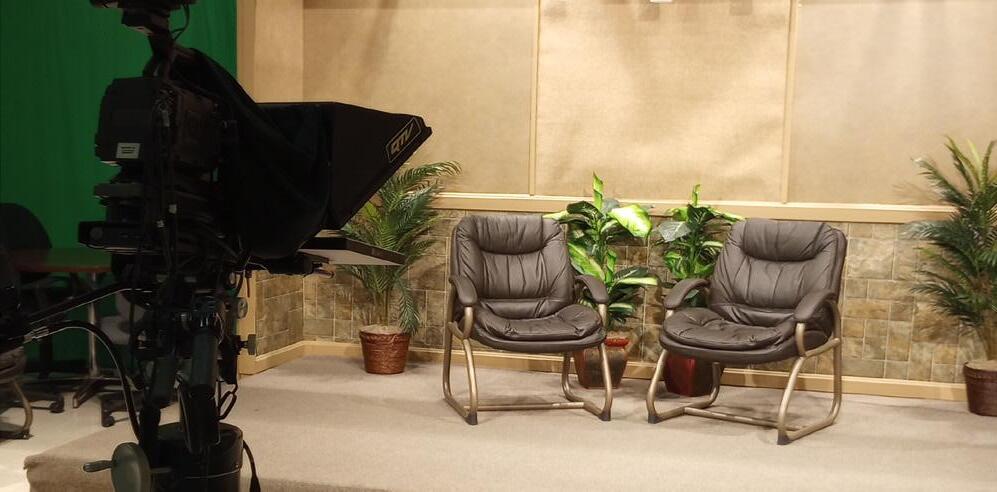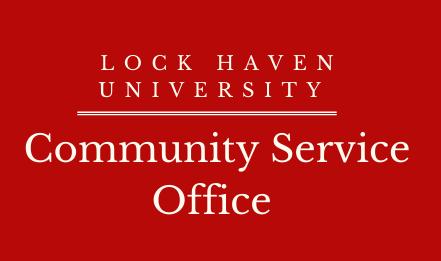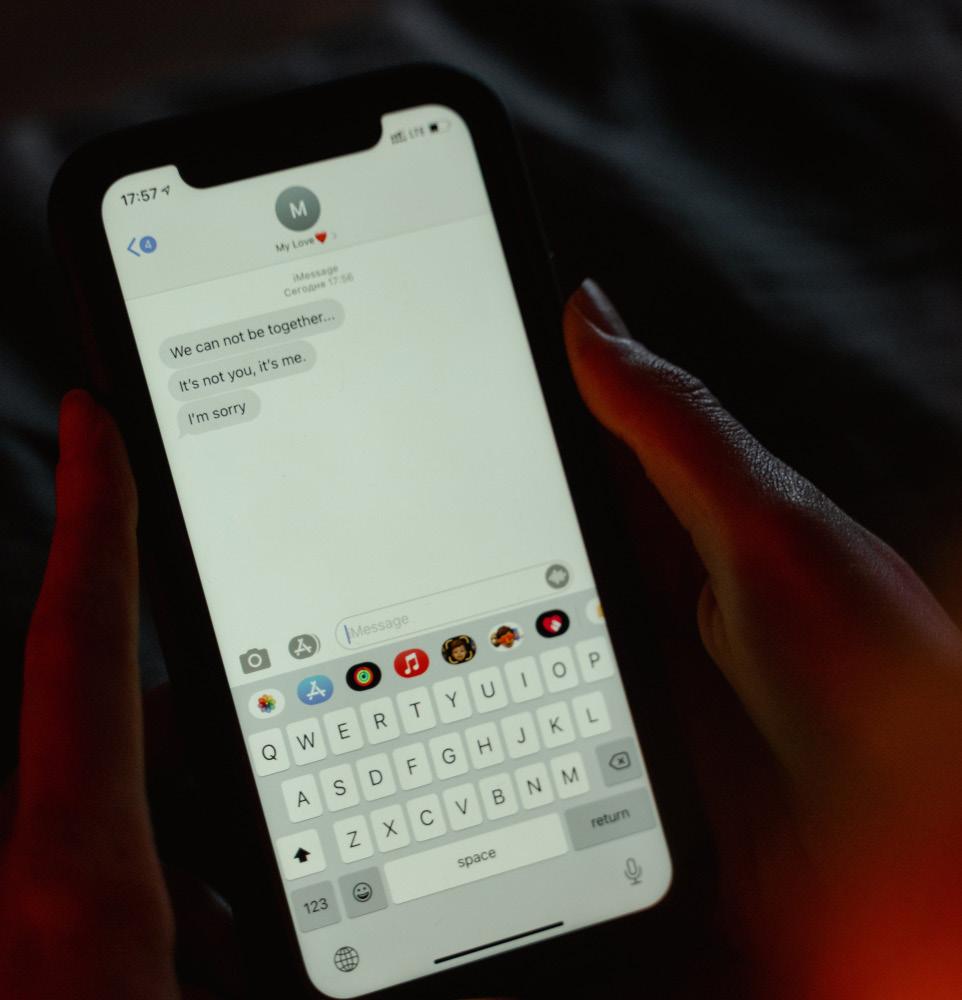
5 minute read
Communication majors disgruntled by collegiate merger and its affects on their department The BIG Event brings the community together
by Kit Taveras Features Editor
Lock Haven University’s BIG Event, which will occur on the week of April 11, is planned to be the largest community project for the university to date.
Advertisement
With some community projects already in the works and others to be announced in the future, the head of the event and Assistant Director of Community Service, Christine Wise, shared that anyone is welcome to participate.
“We’re looking for clubs and organizations who are either serving the greater community or want to come out for a day of community involvement,” said Wise in an interview.
“Projects can include involvement on campus or with the greater Lock Haven community.”
The Big Event is a larger extension of community days held in the past, including the Martin Luther King Jr. Day of Service and Community Night Event.
Different projects are planned to be held on each day of the week starting April 11, with updated information shared on the event’s website as time goes on.
There are several projects already in the works, Wise explained, such as the Biology Club cleaning up the campus orchard. Even more ideas are in early development at the time this article is being written.
As for what kind of ideas are permitted to be used in the event, Wise emphasized that any community service or work is accepted. Examples include but are not limited to road cleanup, food collection, volunteering at a local nonprofit, fundraising and more.
Participation in the event does not extend to clubs and organizations alone. Anyone with a project in mind may also sign up as an individual or a small group of friends. Registration closes on Feb. 28 at 6 p.m. or when space for the event runs out.
To find out more information on The Big Event or how to sign up, visit the event’s website or contact Christine Wise at cwise@ commonwealth.edu.
by Kerri Hoover Editor-in-Chief
Instead of actively participating in face-to-face lectures during his senior year at Lock Haven University (LHU), Journalism major Alex Ross sits for hours on his laptop everyday completing homework for his online classes – something he never expected after returning to campus post-pandemic.
Ross, along with many of his peers enrolled in the LHU Media and Journalism Department, are witnessing drastic changes to their program just six months after the collegiate integration of Commonwealth University. Among the changes include staff shortages, increased online course offerings, and limited access to media equipment.
LHU officially merged on July 1 with Bloomsburg and Mansfield universities to form the collective Commonwealth University. The reasons behind the merger stemmed from declining enrollment numbers and limited financial resources. It seeks to reverse these trends while maintaining each campus’s individuality.
Before the merger, media students were a part of one larger program, the Department of Communication, which housed four concentrations in Advertising/Public Relations, Electronic Media, Journalism, and Organizational Communication. Integration, however, split the program into two: one focusing on digital media and journalism while the other targets business and performative communication.
Five professors taught in the department prior to the merger in 2021. Three taught introductory and some upper-level courses while the other two professors instructed the media-based classes. However, earlier this spring, Lock Haven’s tenured Journalism professor, Sharon Stringer, retired leaving the newly formed Media and Journalism Department with one full-time profes- sor, Matthew McKeague.
Most Lock Haven Communication majors are enrolled in one of the three media-centric tracks according to data provided by McKeague. Forty-eight students made up the combined departments in the fall. Of the 48, 94% have declared to be a media major. Only three students study Organizational Communication. There is a current faculty-to-student ratio of 45:1 in the Media and Journalism Department compared to a ratio of 45:2 when Stringer was employed.
To date, Stringer has not been replaced by the sary for graduation. Others are offered sparingly by professors outside of the department. Advertising and Public Relations majors are similarly affected.
LHU students have mixed feelings about the continuation of online classes in a post-COVID world. Senior Advertising and Public Relations major Dante Nelson prefers taking virtual courses to avoid work scheduling conflicts.
“I don’t mind taking my classes online. I honestly prefer to take them that way. I have a full-time job in State College, and it gets challenging to balance in-person classes at Lock sibility to the on-campus television and radio studios became limited on Sept. 22 due to an updated media policy enacted by Commonwealth University’s Information Technology department. Additionally, the night-shift technician was moved to dayshift without a replacement according to McKeague. Therefore, students were unable to work in the studios or rent out media equipment after 4:30 p.m. without supervision. All production hours and radio shows were rescheduled as a result. university leaving the department low-staffed. According to James Brown, Dean of Students for the College of Liberal Arts across Commonwealth University, priority had not been placed on hiring a substitute for the 20222023 academic year. While a definite answer was not given as to why, Brown alluded to the school’s fiscal deficit as a potential reason.
In the following weeks, two Electronic Media majors – junior Lizabeth Kasmer and sophomore Alison Rancott – were hired as student technicians to supervise the studios to enhance student accessibility.

The staff shortage and integration increased the number of virtual course offerings for students at Lock Haven. Communication majors previously had the option of taking one to two online classes each semester. Since the merger, those numbers have doubled and are largely taught by off-campus instructors.

Journalism students are mainly affected. Their concentration has become an almost 100% virtual major because of staff shortages. As a result, students have to take written media classes online predominantly through Bloomsburg University in order to get the required credits neces-
Haven with work over an hour away. I can better manage time when my classes are online,” he said.
Other students are less enthused about online learning. Journalism majors, like Ross, feel as if they are losing out on their college experience since most of the concentration is taught remotely.
“I mean no disrespect to the students, staff, or faculty at Bloomsburg, but I came to Lock Haven to take classes at Lock Haven. The fact that half of the classes I need to take are only provided by Bloomsburg in order for me to graduate frustrates me. We now have to look for professors outside of our own major on and off campus who may be able to teach the required classes to graduate,” Ross said.
While virtual learning environments provide students with both positive and negative experiences, research largely shows that students perform better in face-to-face classes.
Electronic Media majors are also being impacted by the merger. Acces-
Even though student technicians were hired, students still do not have full accessibility to the studios throughout the week. Evening hours are available Monday through Thursday. However, there is no access to the studios on weekends and Friday evenings. These scheduling changes have upset several Electronic Media majors within the department, including junior William Deming.
“The hours and availability of the TV and radio studios need to be better. While I am glad students can now technically cover those hours it still isn’t full availability, and those students aren’t allowed to do the same things the other staff during the day are, such as accessing the camera equipment room.”
Despite the low morale circulating within the Media and Journalism Department, students hope the changes remain temporary.
“While I’m not happy with our program right now, I really hope things get better and that this is all just growing pains of the new merger,” Ross said. “I probably won’t see much of an improvement since I’m graduating in the spring, but I truly want the best for the LHU Media program as well as the students after me.”








